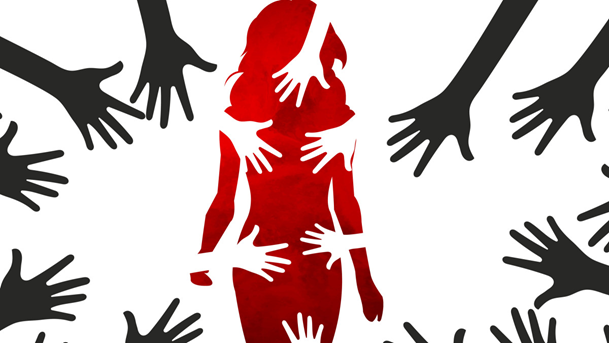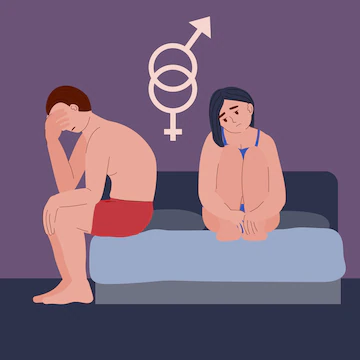Can Trauma Adversely Affect Your Sex Life?
Trigger Warning: This article contains graphic references and information on violating bodily consent and sexual abuse.
Rahul* (name changed) recollects the first time he was sexually abused as a child, “An old man was sitting beside me on the bus. During the journey, he suddenly started touching me in places down my body… I have never felt so uncomfortable and helpless in my entire life as I sat there just wishing for all this to be over.”
Statistics laid out by NSVRC (National Sexual Violence Resource Center) indicates that nearly 81% of women and 43% of men have experienced some form of sexual abuse. The resulting trauma can consciously or unconsciously trigger a lack of sexual desire or sexual dysfunctions concerning intimacy with a partner(s). Here’s a look at the issue in greater detail.

Sexual Abuse and Trauma
According to the American Psychological Association (APA), sexual abuse refers to any form of unwanted sexual activity, with perpetrators using force, making threats, or taking advantage of victims not being able to consent. Abuse in this context can take several forms – rape, molestation, voyeurism, exposure, and many more.
Trauma associated with the violation of bodily consent in the victims can take several forms- ranging from immediate emotional reactions such as shock, fear, low self-esteem, and disbelief to long-term responses such as developing feelings of excessive guilt, anxiety disorders, chronic depression, post-traumatic stress disorder (PTSD) and even sexual dysfunction.
In most instances, the perpetrators of sexual abuse are the people close to the victim in relation, such as a family member, or people having higher authority than the victim, such as sexual abuse around the workplace, where power dynamics dictate norms of abuse. In most cases, such abuse goes unreported, even more so in the case of males being sexually abused due to the associated stigma and shame. Child sexual abuse (CSA) can also manifest in terms of physical effects in later adulthood, such as increased susceptibility to eating disorders, smoking, obesity, and chronic abdominal or pelvic pain.
Victims of sexual abuse may also face difficulties maintaining interpersonal relationships, with most victims falling into patterns of self-destructive behavior, including excessive distrust and not having clear boundaries for themselves. Most survivors of sexual abuse develop a pervasive belief that they were responsible for the abuse meted out to them and that they probably deserved it, which causes them to engage in the above-mentioned behavioral patterns.

Sexual Difficulties In The Lives of Victims of Abuse
Most survivors of sexual abuse report difficulties in their sex life, ranging from engaging in risky sexual behavior such as having unprotected sex with multiple partners (which increases the risk of contracting HIV and other STDs alongside unintended pregnancy) to lack of sexual desire and pain during sexual intercourse. Gynecologic problems like chronic pelvic pain and vaginismus (involuntary tensing of the vaginal muscles during intercourse, which can lead to painful intercourse called dyspareunia) are also commonly diagnosed in survivors of sexual abuse. PTSD also accounts for many premature ejaculation and erectile dysfunction cases in males who were sexually abused.
Trauma also affects intimacy in the emotional sense; anger, irritation, or feeling emotionally distant during intimacy with one’s partner(s) increases the risks of developing orgasm, sexual arousal, and sexual desire disorders, as well as indulgence in IPV (Intimate Partner Violence). PTSD can also predispose to developing pathophysiological issues such as diabetes and hypertension, which adversely affect sex drive.
Victims of sexual abuse are also prone to developing issues regarding healthy attachment with individuals or partners and indulging in substance abuse. Individuals who identify as part of the LGBTQIA+ community are at a higher risk of developing substance addiction. Most importantly, since sex involves a lot of open communication, a general lack of trust in one’s partner(s) or assertiveness about one’s boundaries can lead to dissatisfaction and conflict concerning sexual activity.

Healing From Trauma: Therapy and Unconditional Support
Healing in all situations begins with opening up about the suffering you have endured; the process is no different in the case of healing from trauma brought about by sexual abuse. Obstetricians and gynecologists can be trained to screen all women for any history of sexual abuse. If such signs are found, they can be trained to be empathetic toward the survivor and refer them to mental health practitioners specializing in trauma therapy.
Sex therapy also plays a massive role in helping to heal the trauma and sexual dysfunctions associated with it. It involves efforts to eliminate self-destructive behaviors and thoughts related to the traumatic experience and facilitates open conversation and communication between partners on sexuality. Most importantly, for survivors who belong to the queer or marginalized communities, 24/7 crisis helplines and access to online guides and resources on helping survivors of sexual abuse should be made available.
Finally, as most survivors often open up to their peers or parents regarding any sexual abuse they have encountered or are still encountering, it is extremely important to remain supportive and non-judgemental while listening to their narratives and to reassure them that they are not responsible for the abuse that has happened to them.

Conclusion
Sexual abuse is insidious; it often happens without warning, and the trauma resulting from it can cause significant difficulties in one’s mental health and sexual health as well. Given the stigma associated with sex and sexuality in many cultures and the bigoted expectations placed upon men and women, it comes as no surprise that sexual dysfunction in terms of sexual desire or the act itself is a blow to the self-esteem of many individuals, most of all those suffering from the traumatic memories of the past.
It is important to increase awareness regarding breaking the taboo surrounding sexual dysfunction and combating stereotypes related to it, but it is also essential to address that trauma is not a one-off instance; that your life changes drastically after abuse in terms of your sex life or relationships with people should also be acknowledged. The support of medical practitioners such as gynecologists, obstetricians, sexologists, and mental health professionals can aid the process of recovery from trauma and sexual dysfunction. It can lead to the survivor re-establishing his/her/their sexuality and enjoying intimacy with their partner(s).
Author

Anindya Biswal
Author
-
Anindya (he/him) is a student pursuing Health Psychology at the University of Hyderabad. He is an avid volunteer for anything fun, ranging from reading books, listening to alternative rock music and playing basketball to just binge-watching Netflix.
View all posts
